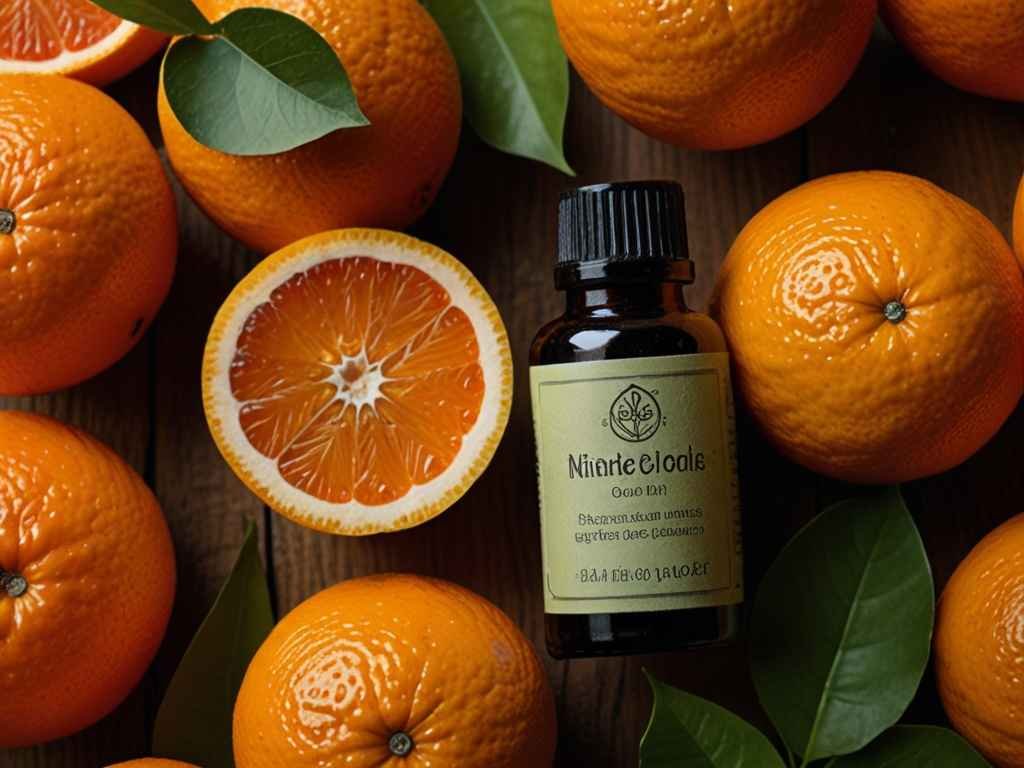Citrus essential oils are celebrated for their invigorating aromas and multiple benefits, ranging from mood enhancement to skincare. However, some citrus oils can cause phototoxic reactions when applied to the skin and exposed to sunlight. This raises an essential question: Which citrus essential oils are not phototoxic? By identifying non-phototoxic options, you can safely enjoy the natural benefits of citrus oils without the risk of adverse skin reactions.
What Is Phototoxicity, and Why Does It Matter?
Phototoxicity, also known as photosensitivity, is a reaction that occurs when specific chemical compounds in essential oils, such as furanocoumarins, interact with UV light. This reaction can result in:
- Skin redness and irritation.
- Blistering or burning sensations.
- Long-term skin discoloration.
Citrus essential oils like bergamot, lime, and grapefruit are often phototoxic when cold-pressed, due to their high levels of furanocoumarins. However, not all citrus essential oils pose this risk, and some can be safely used on sunny days. Understanding which citrus essential oils are not phototoxic is key to safe and effective usage.
Explore: Citrus Essential Oils in Aromatherapy
A Guide to Non-Phototoxic Citrus Essential Oils
Here are the citrus essential oils you can use without worrying about phototoxic reactions:
1. Sweet Orange (Citrus sinensis)
Sweet orange oil is a popular, non-phototoxic citrus essential oil. It’s extracted from orange peels and is known for its cheerful and energizing scent. This oil is gentle and suitable for all skin types, making it ideal for use in skincare and aromatherapy, even during the daytime.
2. Mandarin (Citrus reticulata)
Mandarin oil is a versatile, non-phototoxic citrus essential oil loved for its sweet, fruity aroma. It is especially favored in formulations for children and individuals with sensitive skin. Mandarin oil promotes relaxation and is often used in stress-relief blends.
3. Tangerine (Citrus tangerina)
Tangerine essential oil is similar to mandarin in its properties and is another non-phototoxic option. It offers an uplifting fragrance and pairs well with floral or woody essential oils in blends. Its gentle nature makes it suitable for both skincare and aromatherapy. So chase for Which citrus essential oils are not phototoxic?
4. Yuzu (Citrus junos)
Yuzu oil is a lesser-known citrus essential oil that is non-phototoxic. It has a unique citrusy aroma with hints of sweetness and tartness. Yuzu is often used to alleviate stress and boost mental clarity, making it a valuable addition to any essential oil collection.
5. Steam-Distilled Citrus Oils
While many cold-pressed citrus oils are phototoxic, their steam-distilled counterparts are not. Steam distillation removes the furanocoumarins responsible for phototoxicity, making oils like steam-distilled lemon, lime, and grapefruit safe for use in the sun.
Explore: How citrus essential oils are made ?

Benefits of Non-Phototoxic Citrus Essential Oils
Using non-phototoxic citrus essential oils allows you to enjoy the following benefits without fear of adverse reactions:
- Skin-Friendly: Ideal for skincare products, as they do not cause sensitivity when exposed to sunlight.
- Aromatherapy Safe: Perfect for diffusers or sprays used during the day.
- Stress Relief: Their uplifting aromas help reduce stress and promote a positive mood.
- Versatility: Can be incorporated into DIY products like lotions, balms, and massage oils.
How to Use Non-Phototoxic Citrus Essential Oils
To make the most of these safe and effective oils, consider the following applications:
- Skincare Products: Add sweet orange or tangerine oil to your daily moisturizer or serum for a brightening effect without worrying about phototoxicity.
- Aromatherapy: Diffuse mandarin or yuzu essential oils to create an energizing atmosphere in your home or office.
- DIY Projects: Blend non-phototoxic citrus oils with carrier oils like coconut or jojoba for soothing massage blends or natural perfumes.
- Bath Soaks: Add a few drops of non-phototoxic citrus oils to a warm bath for a rejuvenating and relaxing experience.
Explore: Citrus Essential Oil Benefits
Comparing Phototoxic and Non-Phototoxic Citrus Oils
| Phototoxic Citrus Oils | Non-Phototoxic Citrus Oils |
|---|---|
| Bergamot (cold-pressed) | Sweet Orange |
| Lime (cold-pressed) | Mandarin |
| Lemon (cold-pressed) | Tangerine |
| Grapefruit (cold-pressed) | Yuzu |
| Bitter Orange (cold-pressed) | Steam-Distilled Citrus Oils |
By focusing on non-phototoxic oils, you can avoid skin irritation while enjoying the benefits of citrus essential oils.

FAQs
1. Which citrus essential oils are not phototoxic for daytime use?
Sweet orange, mandarin, tangerine, yuzu, and steam-distilled citrus oils are safe and non-phototoxic.
2. What causes phototoxicity in citrus essential oils?
Phototoxicity is caused by furanocoumarins, compounds found in many cold-pressed citrus oils that react with UV light.
3. Are steam-distilled citrus oils always non-phototoxic?
Yes, the steam distillation process removes furanocoumarins, eliminating the risk of phototoxicity.
4. Can I use cold-pressed citrus oils safely?
Cold-pressed oils like bergamot or lime should be avoided before sun exposure but are safe for use in diffusers or nighttime skincare.
5. How can I check if a citrus oil is phototoxic?
Always check the product label or consult the manufacturer. If the oil is steam-distilled or listed as furanocoumarin-free, it is non-phototoxic.
Conclusion
Knowing which citrus essential oils are not phototoxic allows you to harness the power of these aromatic extracts without the worry of sun sensitivity. Sweet orange, mandarin, tangerine, yuzu, and steam-distilled citrus oils are excellent options for both skincare and aromatherapy. Choose high-quality, non-phototoxic oils for a safe and rejuvenating experience, and enjoy the bright and refreshing essence of citrus every day.

